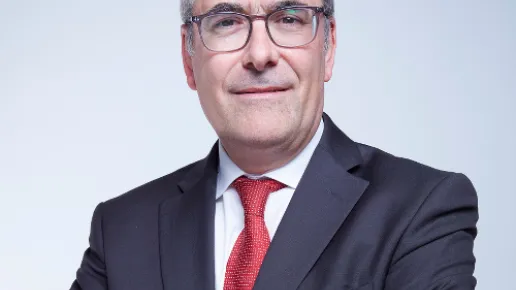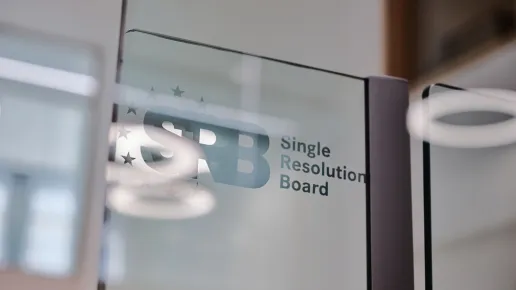One of the main goals of the ongoing review of the Crisis Management and Deposit Insurance framework is to enhance how we address the failure of medium-sized banks. The lack of diversification of their liabilities (mainly equity and deposits) potentially puts into question their ability to bear losses in resolution, as own funds may be exhausted at that point, and bailing-in deposits may hamper financial stability..
This might undermine the credibility of their resolution strategies, as resolution is not a free lunch and access to the Single Resolution Fund (SRF) is subject to bail-in of not less than 8% of total liabilities and own funds (TLOF). As for any other bank, it is crucial to address operational resolvability and build up the mandatory minimum requirements for own funds and eligible liabilities (MREL) buffers by 2024. However, some of these banks have not yet been able to tap – or at least historically have not tapped – the markets to build up adequate MREL.
The SRB is working to better adapt its resolution framework to these banks, using the proportionality principle, but without undermining the end goal: resolvability. This work relies on the following three main pillars: transfer strategies, tailored MREL calibration and access to funding. On the first two, the SRB is in the driving seat, but legislative changes are required for the third.
First, transfer strategies seem to be the best tools for medium-sized banks. The SRB is working to enhance its preparation for using these strategies. For instance, in the first half of 2021, the SRB has made substantial progress in making transfer tools fully operational. The SRB will also prepare additional policies and guidance on separability.
Second, MREL needs proper calibration for transfer strategies. In 2022, the SRB will work on MREL policy for the banks that have transfer tools as the preferred resolution strategy. This could, under certain conditions, lower the MREL requirement for banks compared to the status quo. For banks with a credible transfer strategy, there might not be a real need to set MREL at a level that allows the full recapitalisation of the bank. As a result, MREL requirements could be lower, based on the likelihood of transfer strategies being reliably implementable.
Third, access to external funds in resolution, if needed. Currently, banks facing resolution may have access to the SRF and/or the deposit guarantee schemes (DGSs) under certain conditions. However, these conditions severely restrict the use of DGS funds in resolution, potentially jeopardising the success of resolution. This may create incentives for decision-makers to look for ways to circumvent the resolution framework.
Access to the SRF and its combined use with DGS could be further explored, to act as funding to support those resolution tools other than bail-in that ensure the exit of resolved entities from the market through transfer strategies.
To overcome the legal framework’s restrictions on the use of DGS in resolution, we recommend replacing DGS-super priority by adopting a general depositor preference. The DGS could then contribute to resolutions in a way comparable to other creditors, in accordance with the creditor hierarchy. While this would likely be a limited contribution, given that the DGS would continue to rank above most creditors, it aligns to the broader responsibilities of the DGS in subrogating to the rights of the covered depositors. This would help to achieve all the resolution objectives; including minimising the use of public funds and avoiding further value destruction.
Notwithstanding the above, given the limited size of national DGSs and the existing uneven playing field, another important missing piece to solve the problem of medium-sized banks is to put in place a European Deposit Insurance Scheme (EDIS). A centralisation of tools and funding at EU level would reduce fragmentation and increase the credibility of the overall Banking Union, thereby further enhancing financial stability.
Contact our communications team
Recent news

The SRB recently published two important documents clarifying its expectations of banks regarding operational resolvability: the Operational guidance...

The body responsible for managing banks in crisis in Europe is celebrating its 10th anniversary and claims that Popular's 2017 resolution has been...

In last June, Parliament and Council have clinched a political deal that is applicable to all the EU member states, and which can be seen as a step...



